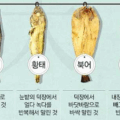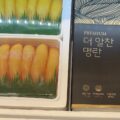Korean Probiotic Drinks

It is no secret that Koreans love probiotics. Kimchi is eaten daily—often two or three times a day—and is rich in probiotics that support gut health. Besides kimchi, yogurt also naturally contains many probiotic microorganisms. Koreans not only enjoy probiotic foods but also add probiotics to drinks, foods, and even skincare products like cleansers and creams that help balance the microbiome. Among all, probiotic drinks are especially popular.
What Are Probiotics?
Probiotics (유산균 in Korean) are live microorganisms beneficial for health, especially the gut. These bacteria help maintain a balanced digestive system, preventing issues like constipation and diarrhea. Factors such as unhealthy eating, alcohol, and stress can disrupt this balance, but ingesting probiotics helps restore it. Probiotics occur naturally in fermented foods like kimchi and yogurt but can also be added to foods or taken as supplements.
Why Are Probiotics Popular in Korea?
While many countries have probiotic foods (e.g., Activia yogurt), Korea’s passion for probiotics runs deeper. The Korean probiotic market is worth about 1 trillion won annually. This is thanks to a strong cultural tradition of fermented foods and digestive health concerns among Koreans. Moreover, smart marketing by companies like ‘hy’ (Yakult) has popularized probiotic drinks as daily essentials.
Korean Probiotic Drinks: What Are They?
Most Korean probiotic drinks are small yogurt- or milk-based beverages with added live probiotic cultures. They are commonly consumed after meals or at breakfast and often given as a dessert in places like school cafeterias. You can find a variety of flavors such as plain yogurt, strawberry, peach, or blueberry in convenience stores and supermarkets.
Popular Korean Probiotic Drinks
¤ Yakult
Originally from Japan (1935), Yakult is now deeply embedded in Korean culture. It contains Lactobacillus Paracasei Shirota, promoting a healthy gut. It’s sweet and milky, loved by children and adults alike. Yakult is available in original and light (less sugar) versions and is sold everywhere. Variants include sparkling and iced Yakult. It’s even used in soju cocktails. Yakult is often sold by “Yakult Ajummas” — local women who deliver it door-to-door.
¤ Will (윌)
This probiotic drink targets Helicobacter pylori bacteria in the stomach, helping reduce related discomfort like gastritis. Unlike most probiotics aimed at the intestines, Will focuses on stomach health. It has been popular for over 20 years and is a larger yogurt-type drink.
¤ Yoplait Doctor Capsule (닥터캡슐)
A probiotic drink by the Korean yogurt brand Yoplait. It contains strains with 1000 times higher survival rates, designed to survive harsh stomach acid and reach the intestines effectively.
¤ Activia
Though not Korean, Activia probiotic drinks are widely sold in Korea. Known globally for gut health benefits, Activia sells yogurt cups and probiotic drinks available in convenience stores. The drinks are large and very yogurty, often consumed as snacks.
Our eternal community friend, the Yakult Lady called “Yakult Ajummas”
The Yakult Ajummas are a famous part of Korean probiotic culture. They sell Yakult and other probiotic products door-to-door using motorized carts called CoCos (cold & cool). Originating as a marketing strategy when Yakult entered Korea, these women, respected in their communities, helped popularize the product. Today, about 11,000 Yakult Ajummas work across Korea, easily recognized by their beige uniforms and carts.
Besides selling, these Ajummas often check on elderly neighbors, helping reduce loneliness and fostering community. This role also offers flexible work for women supporting their families.



